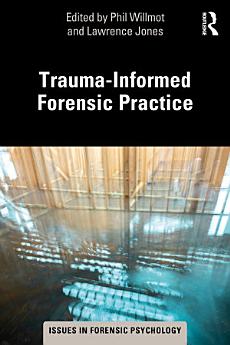Trauma-Informed Forensic Practice
About this ebook
It provides a compassionate theoretical framework for understanding the links between trauma and offending. It also gives practical guidance on working with issues that are particularly associated with a history of trauma in forensic settings, such as self-harm and substance use, as well as on working with groups who are particularly vulnerable to trauma, such as those with intellectual disabilities and military veterans. Finally, it considers organisational aspects of delivering trauma-informed care, not just for service users but for the staff who work in challenging and dangerous forensic environments.
The book is the first of its kind to address such a broad range of issues and settings. It is aimed at forensic practitioners who wish to develop their own trauma-informed practice or trauma-responsive services. It also provides an accessible introduction to trauma-informed forensic practice for undergraduate and postgraduate students.
About the author
Phil Willmot is a Consultant Forensic and Clinical Psychologist and Joint Lead Psychologist for the Men’s Personality Disorder Service at Rampton Hospital. He is also Senior Lecturer in Forensic Psychology at the University of Lincoln, UK.
Lawrence Jones is Head of Psychology at Rampton Hospital. He is a former chair of the Division of Forensic Psychology and has published in a range of areas including therapeutic communities, formulation, "personality disorder", iatrogenic responses to intervention, motivation, offence paralleling behaviour, sexual offending, and trauma- and diversity-informed care.




